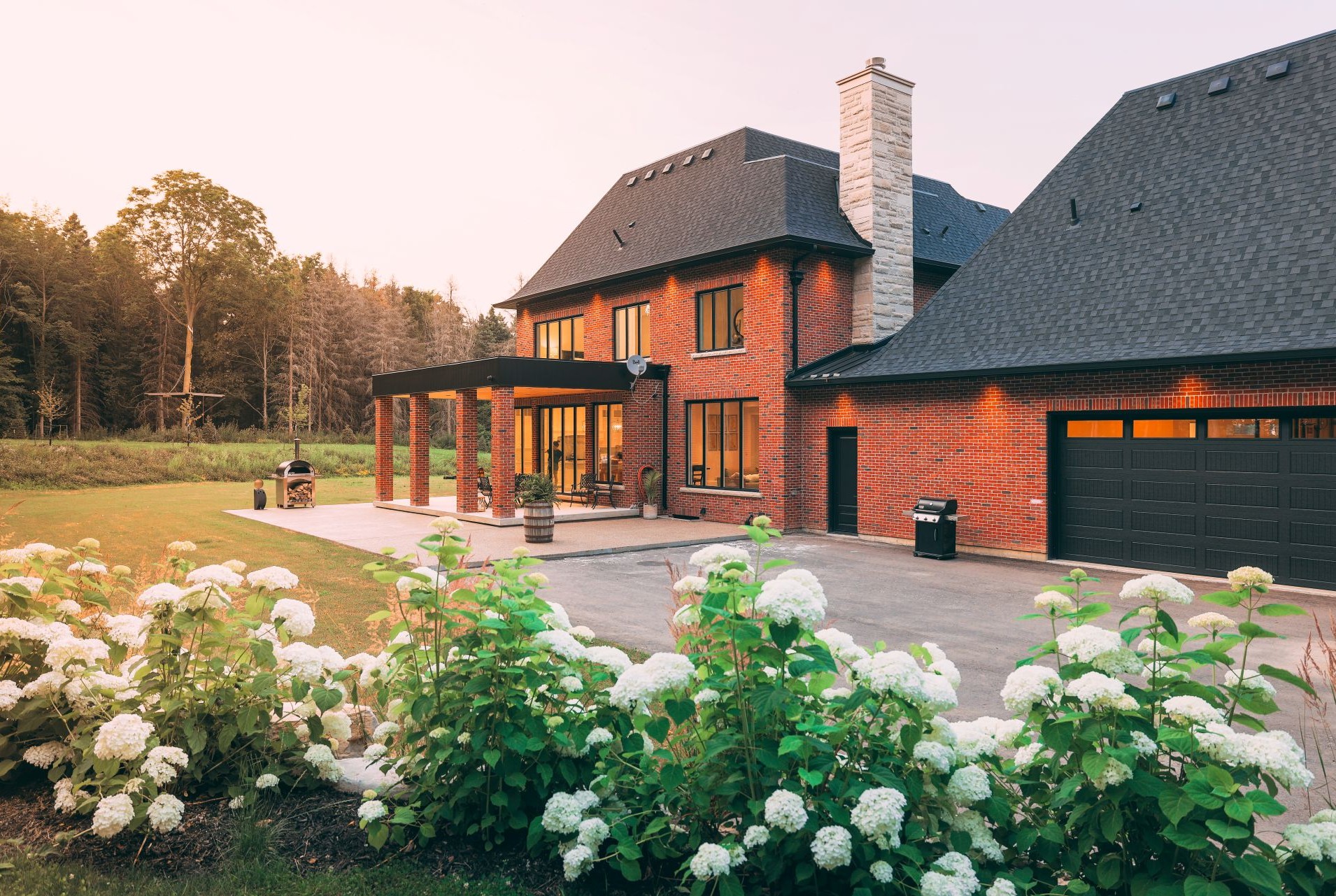
Window Replacement & Repair
2025 House Renovation Costs in Toronto: A Comprehensive Guide
Planning for a house renovation project is undoubtedly exciting! But, let's face it, it can also feel overwhelming, especially when it comes to budgeting. This is why we're here to help!
This article discusses house renovation costs in detail, explaining everything you need to know about the topic. We'll break down renovation costs by room and project type so you can plan smartly, spend wisely, and make the most of every dollar!
Key Takeaways
- Renovation costs in Toronto and Canada overall vary widely based on scope, materials, and room type. Expect to spend anywhere from $15,000 for a simple kitchen update to $100,000+ for whole-home remodels. High-end finishes and structural changes can push costs up significantly.
- Room size and renovation level directly affect your budget. Square footage and the complexity of the work (basic vs luxury) determine whether your kitchen, bathroom, or basement makeover stays under control or spirals beyond your initial budget.
- Labour, permits, and home age all impact final costs. Complex projects can account for up to 50% of the budget. Older homes often require additional updates like electrical or plumbing overhauls, which can increase costs unexpectedly.
- You can control costs with smart planning and strategic upgrades. Mixing high- and low-cost materials, scheduling renovations during the off-season, and knowing when to DIY can help you save some money. Focus on high-ROI areas like kitchens, bathrooms, and energy-efficient upgrades for the best returns.
Average Home Renovation Costs in Toronto
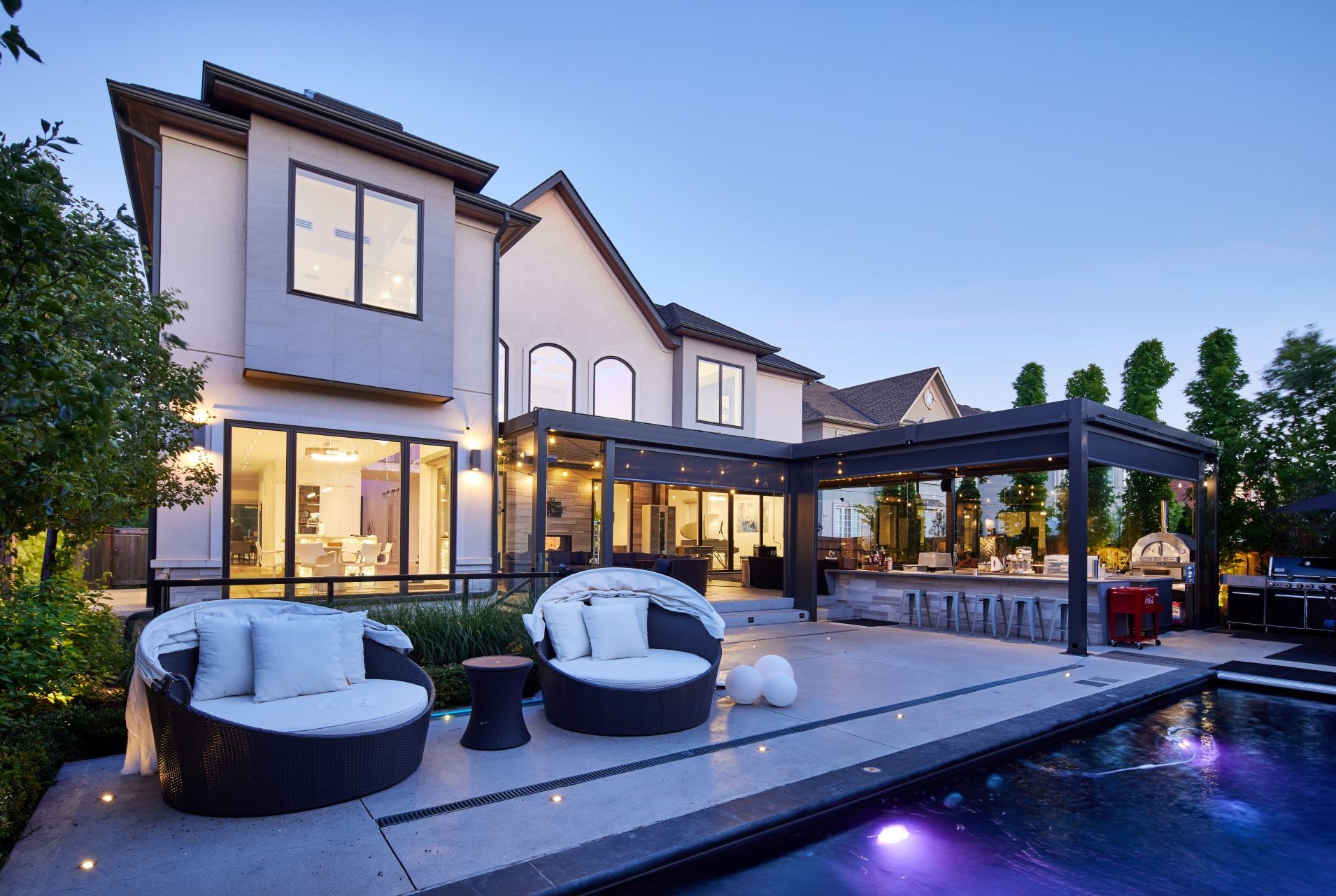
On average, Toronto homeowners can expect home renovation costs to range between $15,000 and $100,000+. The final price depends on the project scope, size, complexity, and other factors. Understanding the square foot cost is essential for planning, as it varies widely from basic renovations to luxury upgrades.
Below, we'll provide a detailed cost breakdown and explain factors that influence the final cost of your renovations. But first, here's a quick overview of the average home renovation budget based on the renovation type:
To further help you plan for your project, here's an estimate based on square footage:
Kitchen Renovation Costs
Renovating your kitchen often has the highest impact on resale value. Because of this, it is a priority for Toronto home renovation projects.
Here’s a detailed breakdown of kitchen renovation project costs in Canada for 2025, categorized by renovation level, from minor renovations to complete overhaul projects with custom finishes.
Basic Renovations for Kitchens
- Typical cost: $13,000 – $25,000
- Best for: cosmetic updates and minor improvements, keeping the existing layout.
What’s included:
- Painting or refacing existing cabinets
- Replacing cabinet hardware
- Installing new, budget-friendly countertops (laminate or entry-level quartz)
- Replacing fixtures and faucets
- Refreshing flooring with vinyl or linoleum
- Keeping existing appliances or replacing them with budget models
- Minor repairs and touch-ups
Example: a homeowner updates a 10x10 kitchen by painting the cabinets, installing a new laminate countertop, changing cabinet handles, and laying down vinyl flooring. Most appliances are kept, but the fridge is replaced with a basic new model.
Mid-Range Renovations for Kitchens
- Typical cost: $20,000 – $65,000
- Best for: more substantial upgrades, improved aesthetics and functionality, and some layout adjustments.
What’s included:
- Replacing or refacing cabinets with semi-custom options
- Installing mid-range quartz or granite countertops
- Upgrading to tile or high-quality laminate flooring
- Adding a new backsplash (tile or quartz)
- Replacing most appliances with mid-tier models
- Installing a new sink and faucet
- Improved lighting (e.g., under-cabinet lights, pendant fixtures)
- Minor layout changes (e.g., moving appliances or adding an island)
Example: a 10x10 kitchen gets semi-custom cabinets, quartz countertops, a stylish tile backsplash, new tile flooring, and mid-range appliances. The layout is tweaked to add a small island and improve workflow.
High-End Kitchen Renovation
- Typical cost range: $40,000 – $75,000+
- Best for: complete transformation, luxury finishes, and significant layout or structural changes.
What's included:
- Custom cabinetry with premium finishes and hardware
- High-end countertops (granite, marble, soapstone)
- Luxury flooring (hardwood, premium tile) or expanding the floor plan
- Professional-grade, smart, or built-in appliances
- Custom lighting design (pot lights, chandeliers, accent lighting)
- Significant structural changes (removing walls, expanding space)
- High-end fixtures and accessories
- Smart home integrations (touchless faucets, built-in charging stations)
- Designer backsplash and feature walls
Example: a homeowner completely redesigns their kitchen, removing a wall for open concept, installing custom cabinetry, marble countertops, high-end appliances (including a built-in fridge and smart oven), hardwood floors, and a designer lighting package.
Bathroom Renovation Costs
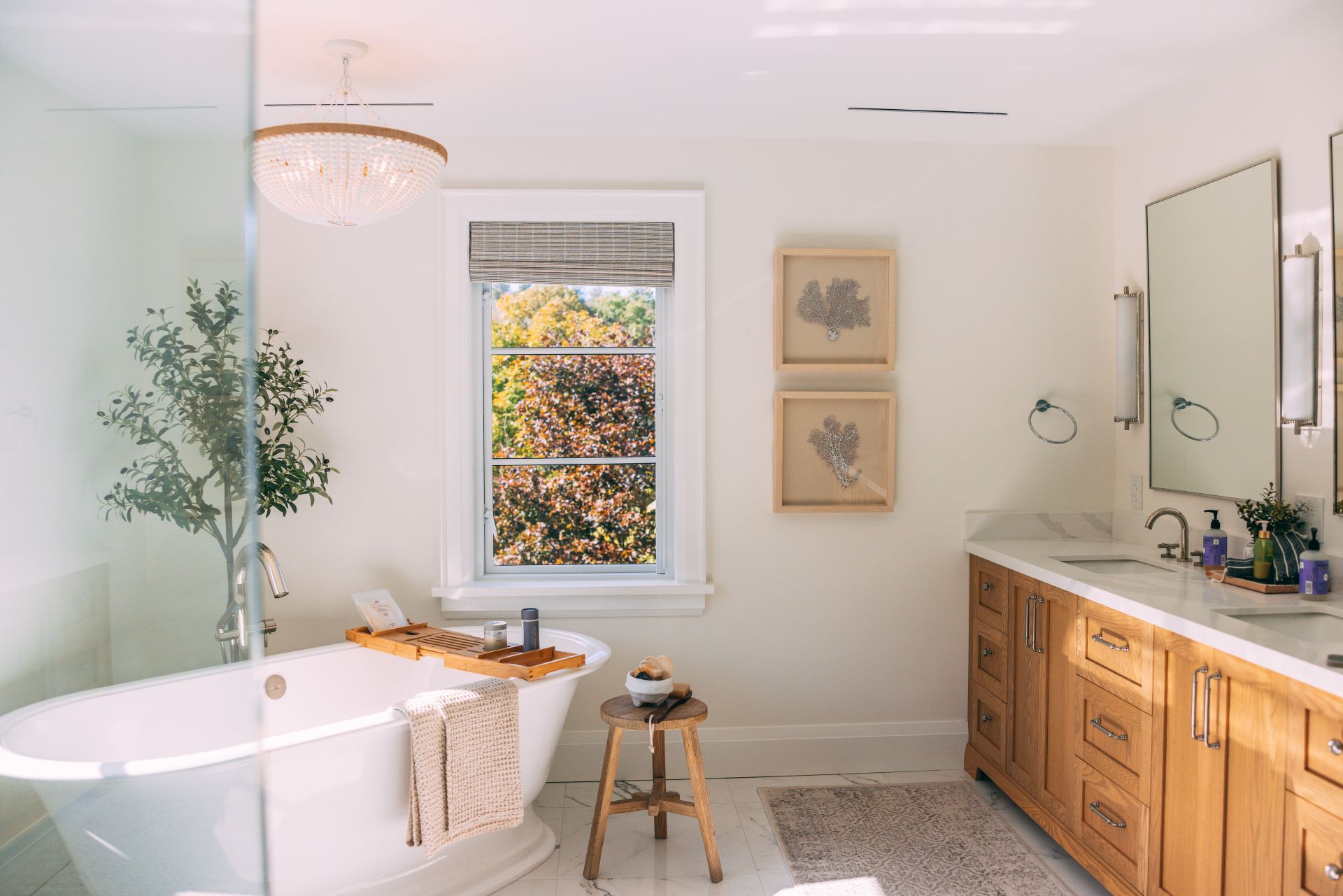
Bathrooms, much like kitchens, can be costly to renovate because of the need for plumbing and high-quality fixtures. The average cost for bathroom renovations in Toronto ranges from $12,000 to $30,000.
Basic Bathroom Renovation
- Typical cost range: $12,000 – $19,500
- Best for: cosmetic updates, minor repairs, and keeping the existing layout.
What’s included:
- Repainting walls and ceiling
- Replacing vanity, mirror, and light fixtures with budget-friendly options
- Installing new faucets and hardware
- Upgrading to basic ceramic or porcelain floor tiles
- Swapping out the toilet or bathtub for standard models
- Minor plumbing or electrical fixes (no major relocations)
- Keeping the existing layout and most fixtures
Example: a homeowner refreshes a small bathroom by painting the walls, installing a new vanity and mirror, replacing the toilet, and laying down basic tile flooring—no major construction or plumbing changes.
Mid-Range Bathroom Renovation
- Typical cost range: $18,000 – $25,000
- Best for: upgrading fixtures and finishes, some layout adjustments, and improved functionality.
What’s included:
- Replacing all fixtures (toilet, vanity, tub/shower) with mid-range brands
- Installing new mid-grade tiles on floors and walls
- Upgrading lighting (e.g., LED pot lights, stylish vanity lights)
- Adding a new glass shower enclosure
- Replacing or upgrading the ventilation fan
- Minor layout changes (e.g., moving the vanity or toilet slightly)
- Improved storage (medicine cabinet, shelving)
Example: a homeowner replaces all bathroom fixtures, installs a new glass shower, upgrades to mid-range porcelain tiles, adds built-in storage, and updates lighting for a more modern look.
High-End Bathroom Renovation
- Typical cost: $25,000 – $40,000+
- Best for: complete transformation, luxury finishes, significant layout or structural changes.
What’s included:
- Custom vanities and cabinetry with premium materials (quartz, granite, marble)
- High-end fixtures (rain shower, freestanding tub, smart toilet)
- Heated flooring and towel racks
- Premium tiles (natural stone, designer porcelain) on floors and walls
- Custom glass shower enclosures or walk-in showers
- Structural changes (e.g., expanding the bathroom, moving plumbing)
- Designer lighting and smart home integrations
- Spa-like features (steam shower, built-in sound system)
Example: a homeowner guts the bathroom, expands the space, installs a custom double vanity with marble countertops, and adds a walk-in rain shower with body jets, heated floors, designer lighting, and a freestanding tub.
Basement Renovation Costs
Basement renovations offer a great opportunity to add valuable living space to your home. Here is an overview of typical costs for basement renovations in Toronto.
Basic Basement Renovation
- Typical cost: $30,000 – $50,000
- Best for: making an unfinished basement livable with standard finishes.
What’s included:
- Framing, drywall, painting
- Basic flooring (carpet, vinyl, or laminate)
- Standard ceiling (drywall or suspended)
- Basic lighting and electrical outlets
- Essential repairs like replacing insulation and waterproofing
Example: a homeowner finishes a 700 sq. ft. basement with drywall, vinyl flooring, basic lighting, and a simple powder room, creating a playroom or rec space.
Mid-Range Basement Renovation
- Typical cost: $50,000 – $75,000
- Best for: Adding functional rooms and higher-quality finishes.
What’s included:
- Higher-end flooring (engineered hardwood, luxury vinyl plank)
- Finished living area, bedroom, and full bathroom
- Upgraded lighting (pot lights, dimmers)
- Built-in storage or entertainment units
- Wet bar or small kitchenette
- Improved insulation, soundproofing, and waterproofing
- Replacement of egress windows and window wells
Example: a homeowner renovates a 1,000 sq. ft. basement to include a family room, guest bedroom, full bathroom, wet bar, and upgraded flooring and lighting.
High-End Basement Renovation
- Typical cost: $75,000 – $150,000
- Best for: Custom, luxury spaces with major upgrades and specialized features.
What’s included:
- Custom cabinetry, built-ins, and premium flooring (hardwood, tile)
- Home theatre, gym, wine cellar, or sauna
- Full bathroom with luxury finishes
- High-end lighting, sound systems, and smart home features
- Structural changes (e.g., underpinning for higher ceilings, adding windows)
- Full kitchenette or bar
- Advanced waterproofing, radiant heating, and soundproofing
Example: a homeowner transforms a 1,400 sq. ft. basement into a luxury suite with a home theatre, gym, custom bar, spa bathroom, and premium finishes throughout.
Whole House Renovation Costs
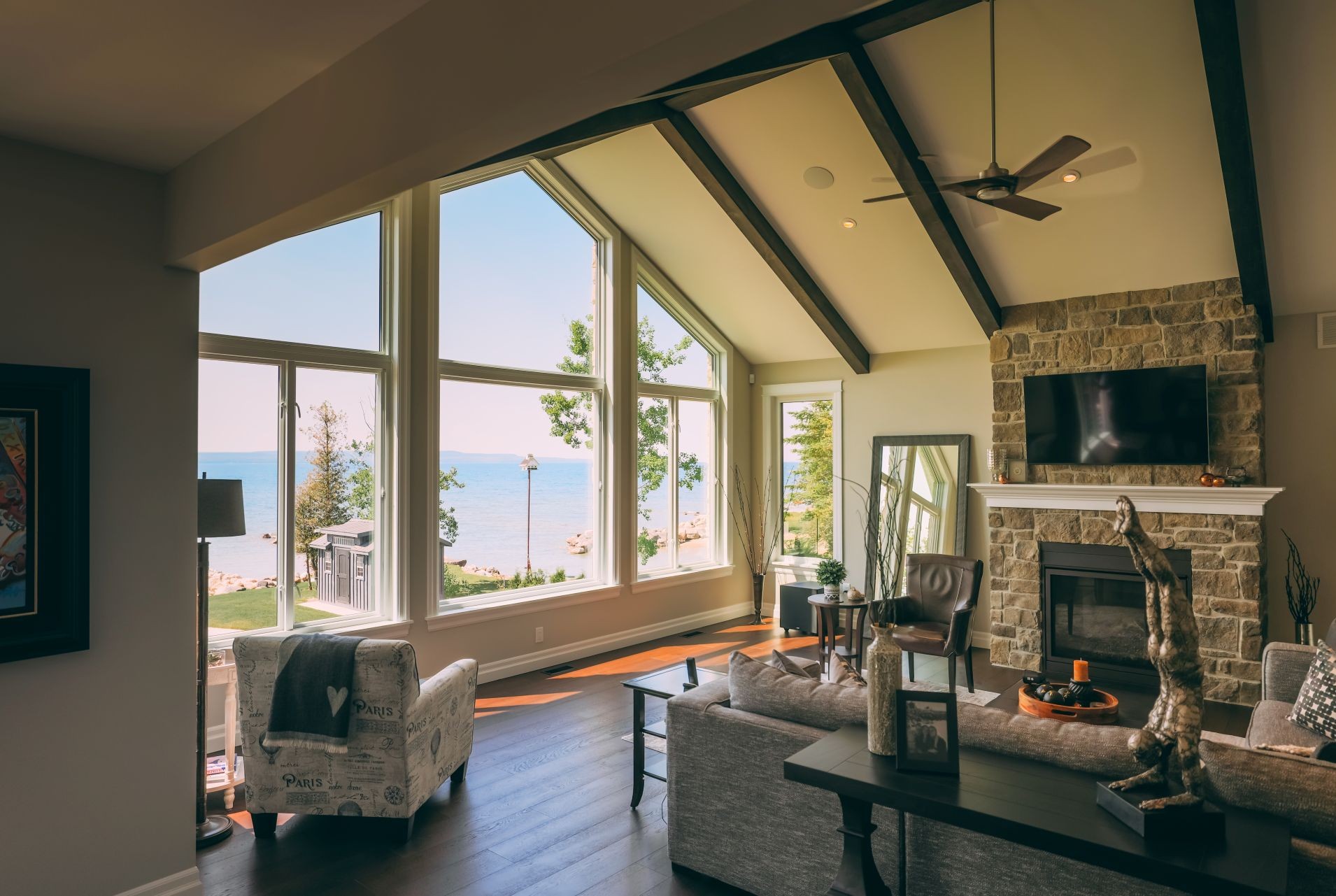
Renovating an entire house is a major investment and can dramatically transform your living space, comfort, and property value. Costs vary widely depending on location, the scale of work, materials, and the age or condition of the property.
Here are some average whole house renovation costs (keep in mind that these are only approximate cost ranges, given that we do not know the renovated area):
Key Factors Influencing Renovation Costs
Several key factors influence the overall renovation costs, including the type of project, the size of the room, and the scope of the work. Additionally, costs can vary significantly between different neighborhoods, influenced by local prestige and design expectations. In the following sections, we'll discuss all these factors in detail.
Material Quality and Choices
The materials chosen for a renovation project greatly affect overall costs. Utilizing premium materials like hardwood flooring can increase expenses substantially, sometimes even doubling or tripling the budget. High-end renovations, often implying luxury finishes and custom designs, can exceed $400 per square foot.
Custom sizes for items such as cabinets, doors, or tiles can also drive up costs, making it essential to balance quality and budget effectively.
Labor Costs
Labor costs constitute a significant portion of the renovation budget, often accounting for 40% to 50% of the total expenses.
Average labor costs for skilled trades in Toronto range from $60 to $100 per hour. Complex projects involving electrical and plumbing work, for example, or structural changes may increase labour costs. Therefore, it's recommended to obtain multiple quotes before choosing a team.
Scope and Complexity of Project
The scope and complexity of a renovation project significantly influence its renovation cost. Factors affecting costs include:
- Costs per square foot can vary from $100 to $400 based on project specifics. Small renovation projects are naturally more budget-friendly.
- High-end renovations with luxury finishes and custom designs can elevate costs well above mid-range upgrades.
- Structural changes, such as removing load-bearing walls or upgrading plumbing and electrical systems, can also escalate costs.
Permits and Regulations
Building permit fees are often required for major renovations, especially those involving structural changes, electrical work, or plumbing changes. Costs vary by municipality but can range from $200 to several thousand dollars.
Furthermore, compliance with local building codes may require additional upgrades or design adjustments.
Location and Region
Total renovation costs vary widely across Canada:
- Urban centers like Vancouver, Toronto, and Ottawa generally have higher labor and material costs.
- Remote or rural areas may also have higher costs because of transportation and limited contractor availability.
Property Age and Condition
Older homes may require:
- Asbestos or lead paint removal
- Outdated plumbing system and electrical replacement
- Foundation or structural repairs
These issues are often unforeseen and can inflate the budget quickly.
Timing and Seasonality
Renovations scheduled during peak seasons (spring and summer) may incur higher labour costs and longer wait times. On the other hand, off-season renovations (during the winter) might offer discounts but could be limited by weather or availability.
Other Factors that Influence Home Renovation Costs
Here are some other factors that influence home renovation costs and can help you create a realistic budget:
- Design and project management. If you need to work with an architect, interior designer, or engineer, you can expect to spend 10%-20% more.
- Temporary living arrangements. If the home is uninhabitable during renovation, you need to consider possible expenses for alternative accommodations. Moreover, don't forget about storage costs for belongings.
- Demolition and waste disposal. Tearing down existing structures and disposing of waste can be surprisingly expensive.
- Energy efficiency upgrades. Upgrading to energy-efficient windows, improving insulation, or installing HVAC systems can lead to higher upfront costs. However, these upgrades offer long-term savings.
Maximizing Return on Investment (ROI)
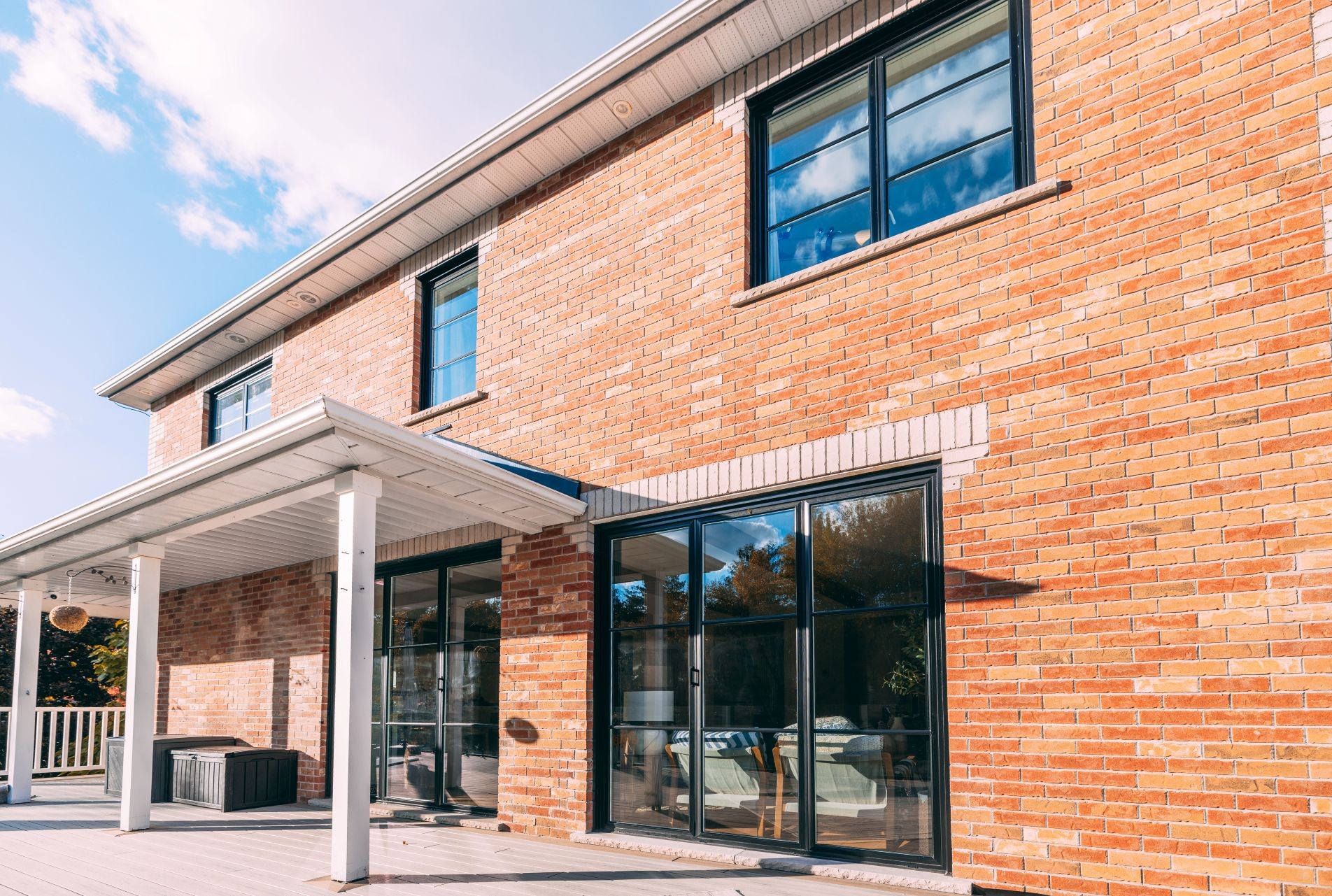
Renovations can significantly increase property value, especially in competitive housing markets like Toronto. To ensure your investment pays off, focus on upgrades that combine broad market appeal, functional improvements, and energy efficiency.
High-impact renovation areas:
- Kitchen and bathroom renovations: yield up to 75% ROI; upgrades improve both functionality and aesthetics.
- Usable square footage: finishing basements or converting attics can unlock untapped value.
- Energy-efficient upgrades: improvements like new insulation, triple-pane windows, or ENERGY STAR-rated HVAC systems reduce energy costs and attract eco-conscious buyers.
Low ROI renovations:
- Highly personalized luxury features (e.g., built-in aquariums, themed rooms)
- Backyard pools or hot tubs (depending on region)
- Significant renovations in low-value neighborhoods
- Over-renovating beyond neighborhood norms
Here's a tip: choose renovations that align with both market demand and the condition of your home to maximize returns, and don't neglect essential repairs, as this could decrease home value.
Budget-Friendly Renovation Tips
Staying within budget doesn't mean compromising on results. With careful planning and smart decisions, you can reduce home renovation costs while still achieving high-impact outcomes.
You can start by setting clear renovation goals. This helps prioritize which rooms or features are worth investing in and reduces the risk of scope creep. Keep these in mind:
- Use standard-size fixtures and finishes to avoid custom fabrication fees.
- Repurpose or restore existing materials. Refinishing hardwood floors or repainting cabinets can transform a space for less.
- Mix budget and premium materials. Splurge on visible elements like countertops and save on internal fixtures or storage.
- DIY where possible. While structural work should always be left to professionals, there are many projects you can safely handle yourself. Easy DIY projects include painting the walls or ceilings, installing cabinet knobs, hanging shelves, mirrors, or curtains, and replacing light fixtures.
- Off-season renovations. In Canada, the off-season for home renovations typically falls between January and March, when demand slows, and many contractors have open schedules.
DIY vs Professional Renovations
If you want to save some money on your home renovation with DIY fixes, here's a list of upgrades that you can take care of yourself and those that require professional services:
How to Choose the Right Contractor
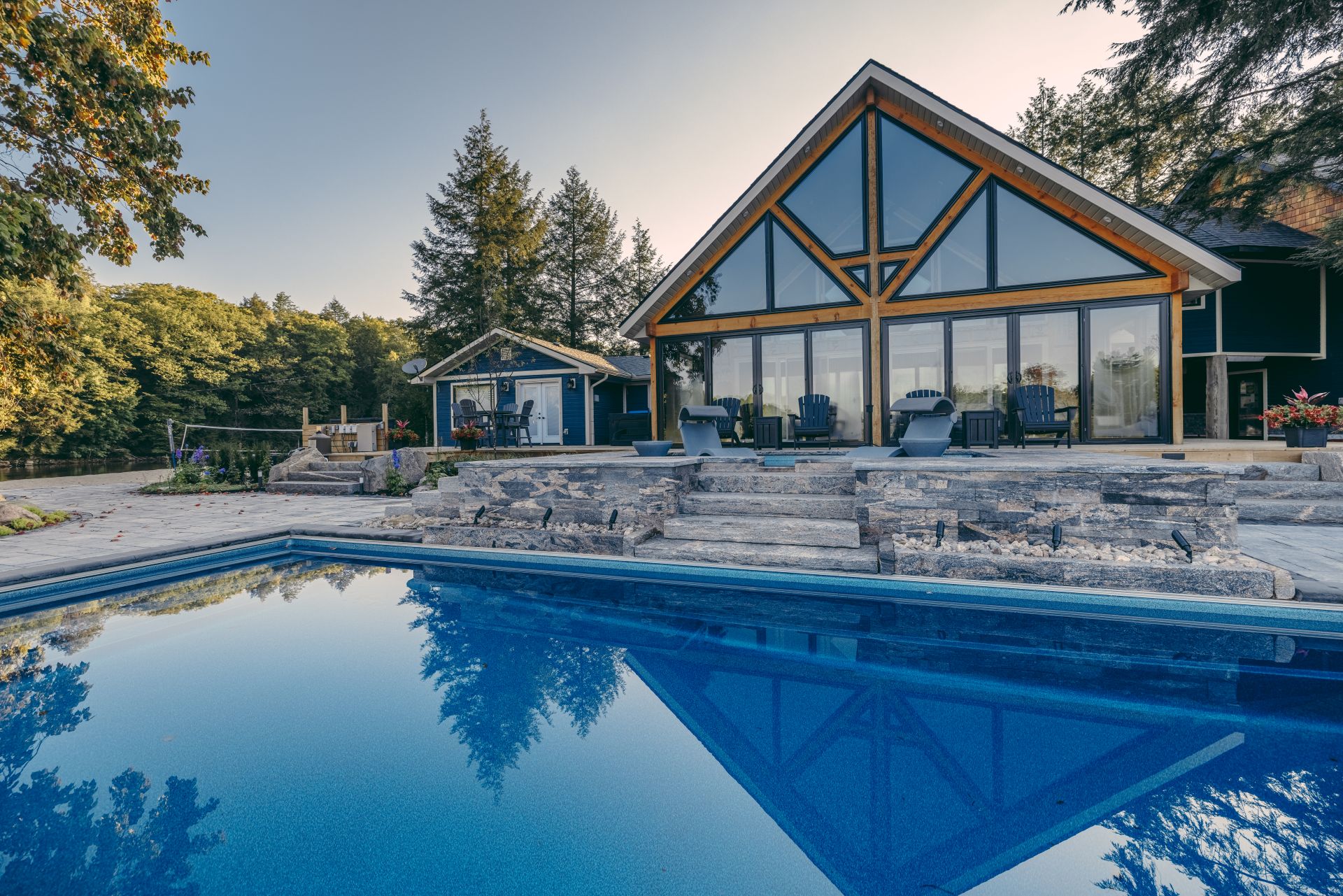
Selecting the right contractor is critical for a successful renovation project.
Here's what you should look for in a contractor:
- Proper licensing and a business address in your area
- Experience with similar projects in your region
- Willingness to provide references and detailed written quotes
- Clear communication and a realistic project timeline
Therefore, it's recommended to interview multiple contractors and ask detailed questions to gauge their professionalism and compatibility with your project.
Evaluating Contractor Quotes
The next in line, waiting to be assessed, is the quote, which can help prevent unexpected costs and plan for emergency repairs required during the renovation process.
What to look for in a quote:
- Detailed scope of work with specific materials and labor
- Project timeline, including key milestones
- Payment schedule with clear terms (e.g., deposit, progress payments, final payment)
- Warranty information for both labor and materials
Try to avoid vague or overly general estimates. It's best to work with contractors who offer itemized quotes for your home renovation project.
Checking References and Credentials
Never skip this step! Verify the contractor's credentials, especially if you're planning a complete renovation or overly personalized renovations. This step can prevent costly legal or safety issues down the road.
You can contact past clients and ask about timeliness, cleanliness, communication, and workmanship. You can also verify licenses and certifications through local government websites. Moreover, check insurance coverage, including liability and worker's compensation.
Government Incentives for Home Renovations
There are various programs you can apply for to offset your home renovation prices. For example, you can apply for the Canada Greener Homes Loan. You can also apply for the Home Renovation Savings Program if you plan to make energy-efficient upgrades. Other programs you may want to consider include eco programs designed for CMHC-insured homes, the HST/GST New Housing Program, as well as provincial New Housing programs.
You can also use HELOCs (Home equity lines of credit) to tap into your home's equity. This option is particularly useful for projects with fluctuating prices.
Why Magic Windows and Glass Doors Are a Smart Investment
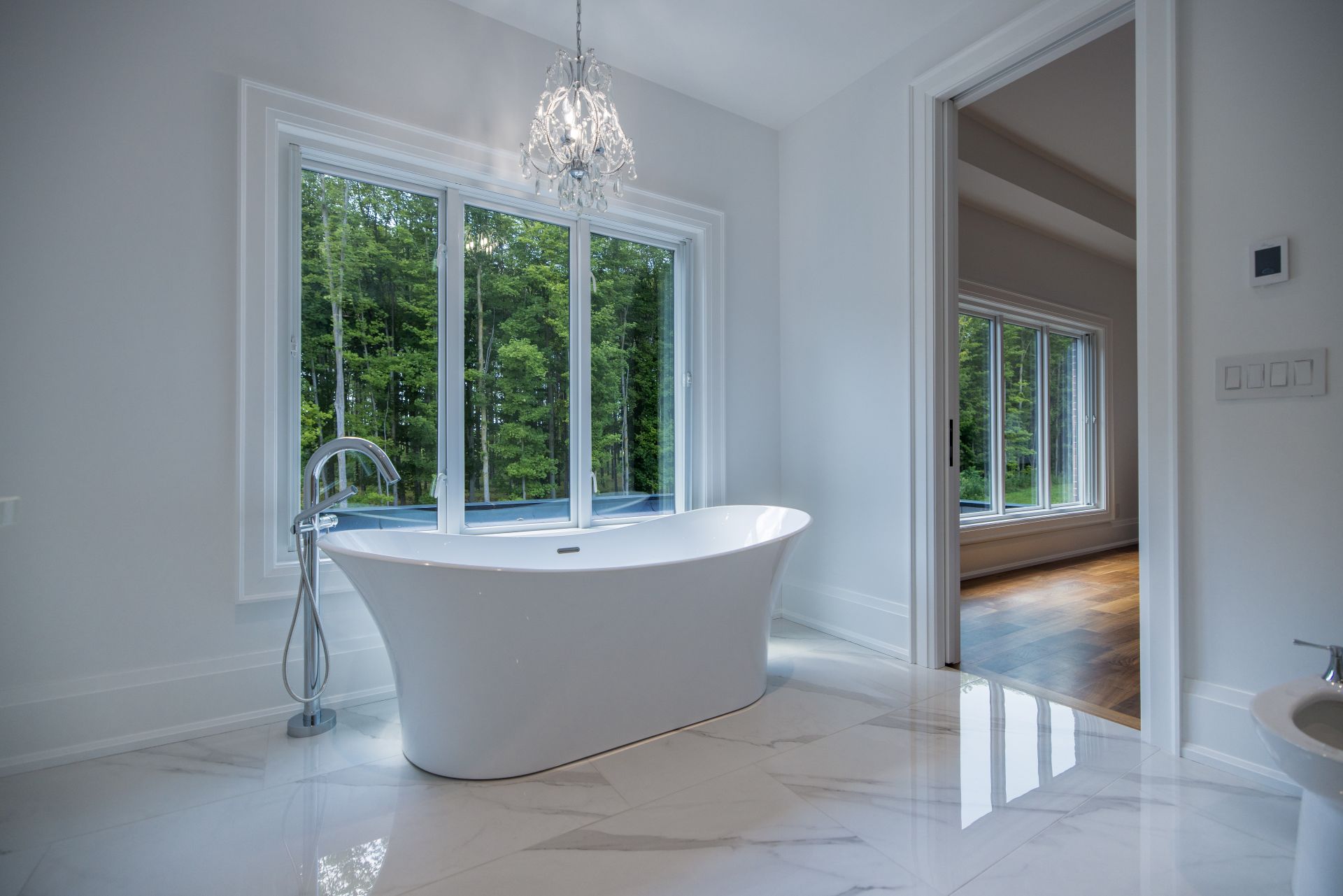
When planning a home renovation, upgrading your windows and doors may not seem as glamorous as installing a new kitchen or spa-like bathroom, but it can be one of the most valuable improvements you make.
High-performance options like Magic windows and glass doors offer far more than just aesthetics. They deliver measurable energy savings, advanced technology, and long-term comfort.
Magic windows and doors are engineered with highly durable frames, high-performance Low-E coatings, argon gas-filled panes, and the best-performing warm-edge spacers. All these features significantly reduce heat transfer, leading to lower heating and cooling bills year-round. Our products can:
- Reduce energy costs by up to 30% annually
- Minimize drafts and cold spots near windows and doors
- Help homes meet or exceed ENERGY STAR® standards
Magic products are also manufactured with materials that require little to no maintenance, still performing well for 40 years, as long as our industry-leading warranty lasts.
Curious to learn more about our innovative technologies? Give Magic a call!
Frequently Asked Questions
How much does it cost to remodel a 2000 sq ft house in Canada?
Remodeling a 2,000 sq ft house in Canada typically costs between $200,000 and $400,000 or more, depending on the renovation quality and materials used.
How much should you budget for a house renovation?
You should budget between 5% and 20% of your home's value for renovations or roughly $100 to $300 per square foot based on the project's scale and finishes.
What costs the most when renovating a house?
When renovating a house, expect to spend the most on structural changes, kitchen and bathroom renovations, and upgrades to electrical and plumbing systems.
How much remodeling can be done with $100,000 in Ontario?
With $100,000 in Ontario, you can complete mid-range renovations for spaces like the kitchen, bathroom, and flooring or a full renovation of a smaller home.
How much does a typical kitchen renovation cost in Toronto?
A typical kitchen renovation in Toronto can cost anywhere from $15,000 for minor updates to over $100,000 for high-end renovations, depending on materials and the extent of the project.
What are the average costs for bathroom renovations in Toronto?
The average costs for bathroom renovations in Toronto typically range from $12,000 to $30,000, while minor updates may be as low as $5,000 to $15,000.